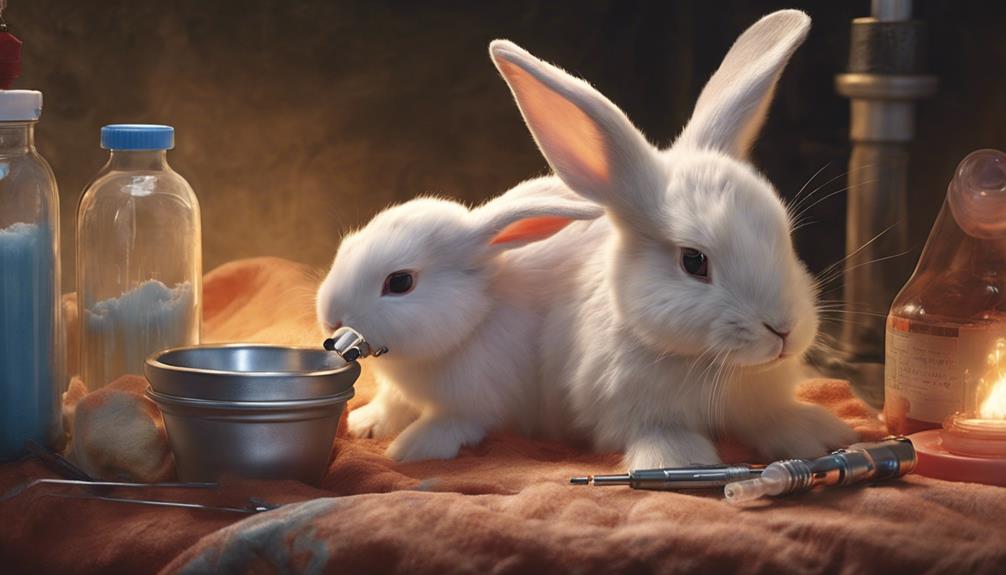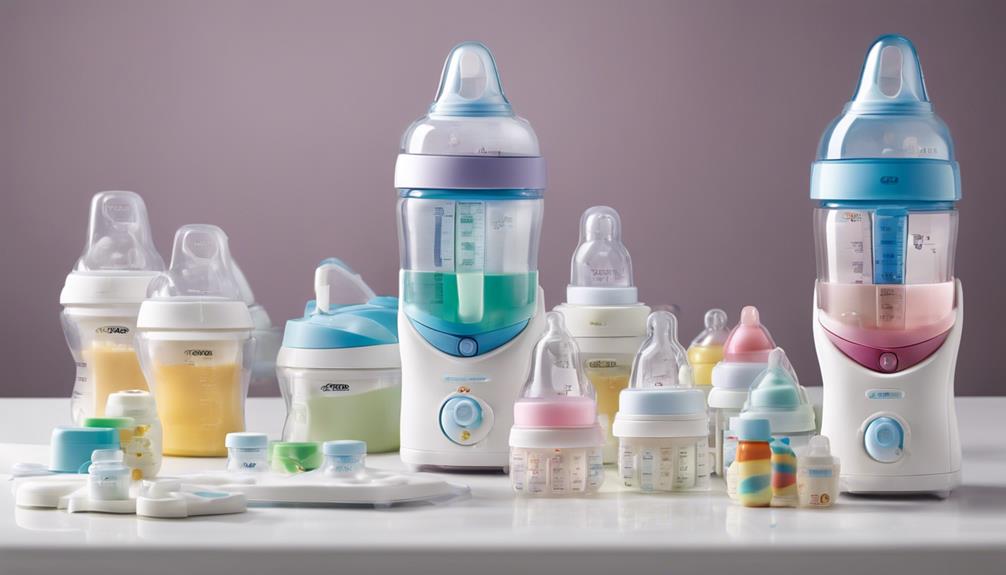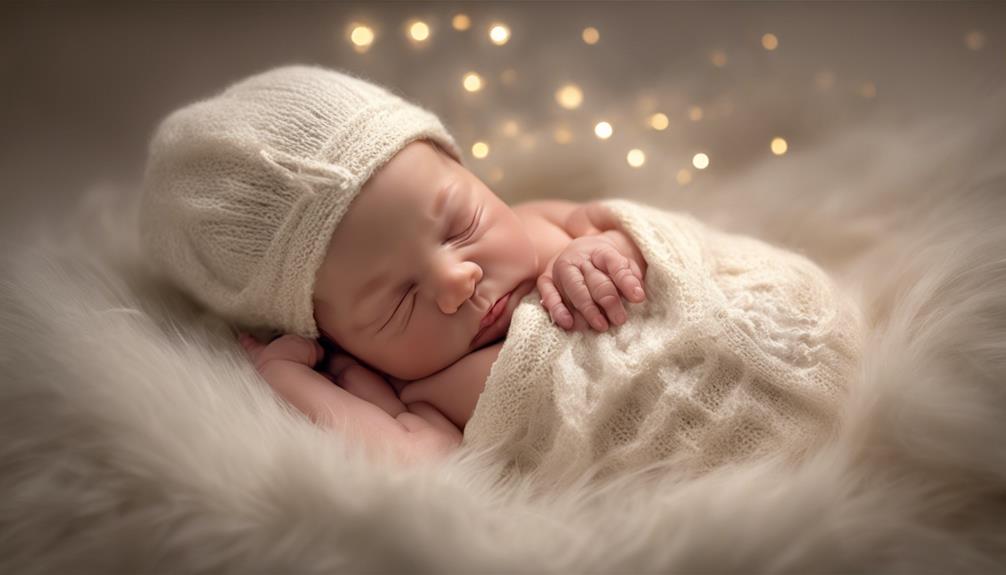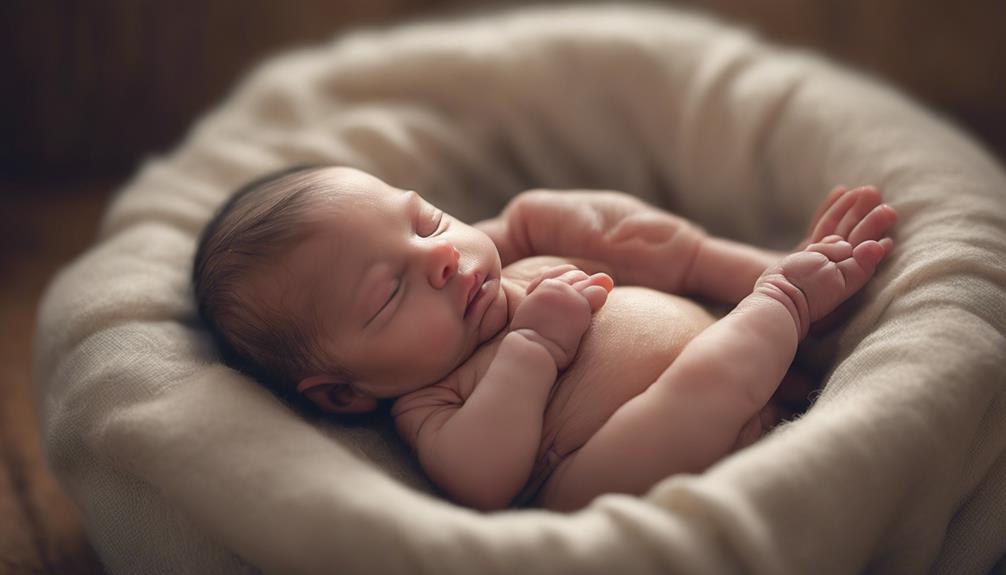Did you know that baby rabbits are born without fur, are blind, and depend entirely on their mothers for survival?
When faced with caring for orphaned baby bunnies, it can be a challenging task to guarantee their well-being and growth.
From maintaining their body temperature to providing proper nutrition, the care of these fragile creatures requires attention to detail and knowledge of their specific needs.
Join us as we explore the essential steps to nurturing newborn rabbits without a mother, guiding you through the intricacies of their care with expert advice and practical tips.
Key Takeaways
- Maintain optimal warmth through external heating sources.
- Provide high-quality, warmed milk replacer for nourishment.
- Monitor hydration levels closely to prevent dehydration.
- Create a safe, cozy environment to support their well-being.
Keeping the Newborn Rabbits Warm
To guarantee the well-being of newborn rabbits, it's significant to keep them warm as they're unable to regulate their own body temperature. Baby rabbits require a constant heat source to maintain their health, with the ideal temperature falling between 85-90 degrees Fahrenheit.
Using a heating pad set on low or a heat lamp at a safe distance can provide the necessary warmth for these delicate creatures. However, it's essential to be cautious and prevent direct contact between the heat source and the newborn rabbits to avoid accidental burns.
Regularly monitoring the temperature in the area where the baby rabbits are kept is critical to make sure it remains within the recommended range for their well-being. By creating a cozy and warm environment for the newborn rabbits, we can help them thrive and grow strong during this critical stage of their lives.
Providing Proper Feeding Schedule
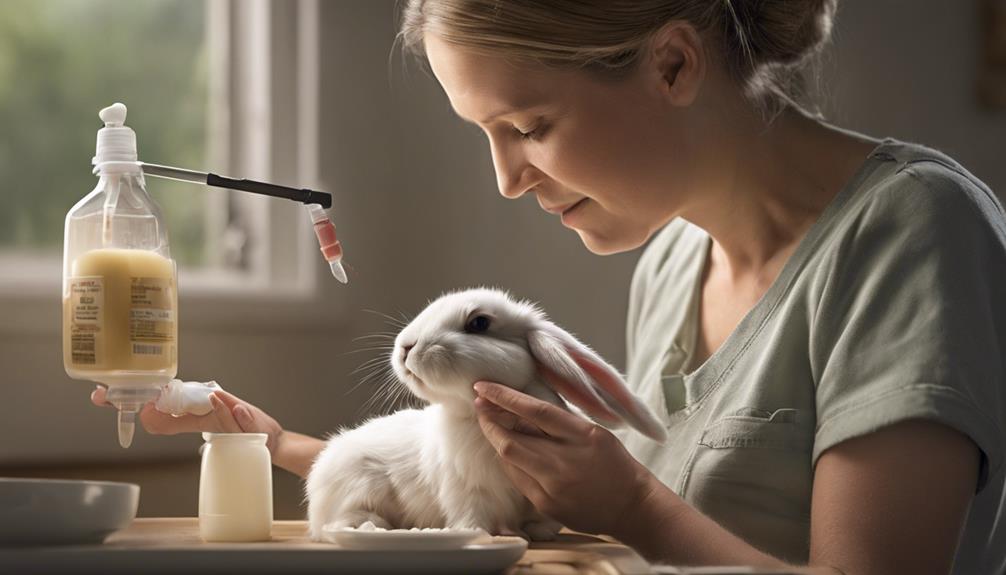
Let's guarantee that our newborn rabbits without a mother receive proper nourishment by establishing a feeding schedule of 2-4 times per day. It's important to feed them a high-quality milk replacer designed for baby rabbits to meet their specific nutritional requirements.
Before each feeding, make sure the milk replacer is warm, ideally around 100-105°F, as this temperature aids in digestion and mirrors the warmth of a mother rabbit. After feeding, monitor the baby rabbits for full bellies to confirm they're getting adequate nourishment.
As the baby rabbits grow, gradually increase the feeding amounts to accommodate their changing nutritional needs. By following this feeding schedule and adjusting the amounts accordingly, we can provide the baby rabbits with the necessary care and make sure they receive proper nourishment for their healthy development.
Monitoring Hydration Levels
Upon confirming the newborn rabbits are receiving proper nourishment through a consistent feeding schedule, our attention now shifts to monitoring their hydration levels to safeguard their well-being. Dehydration in newborn rabbits can have severe consequences, making it important to keep a close eye on their hydration status.
Here are some key signs of dehydration to watch out for:
- Dry skin: Check the baby rabbits' skin for any signs of dryness or flakiness.
- Sunken eyes: Inspect their eyes for a sunken appearance, which can indicate dehydration.
- Lethargy: Monitor their activity levels; increased lethargy could be a sign of dehydration.
- Feeding techniques: Ensure they're receiving adequate fluids through proper feeding techniques.
Encouraging hydration and seeking immediate veterinary assistance if you suspect dehydration in newborn rabbits is crucial. By staying vigilant and proactive in monitoring their hydration levels, you can help ensure the well-being and survival of these delicate creatures.
Creating a Safe Environment
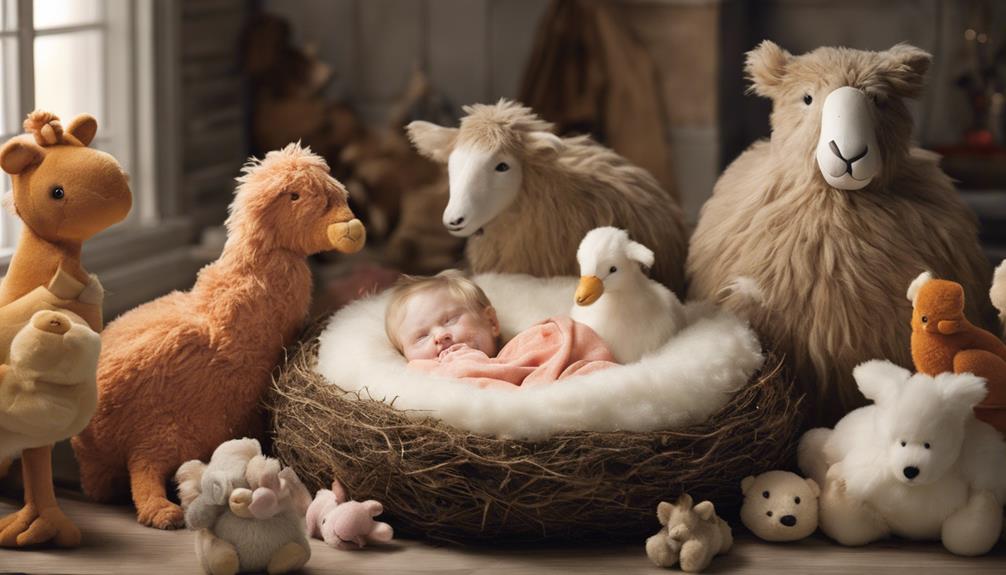
For the well-being of the newborn rabbits, it's important to create a safe environment that mimics the comfort and security of a mother's nest. Baby rabbits, or kits, need a warm, quiet, and safe space to thrive. Use an enclosed box with soft, clean bedding to replicate a mother's nest.
Make sure the area is draft-free, free from loud noises, and disturbances. Place the nest box in a secluded, dimly lit area to minimize stress on the babies. Regularly monitor the temperature and cleanliness of their surroundings to promote their health.
Keeping the environment cozy and conducive to their development is vital for their care. By providing a secure and nurturing space, you can help the newborn rabbits feel safe and supported during this vulnerable stage of their lives.
Recognizing Signs of Distress
When caring for newborn rabbits without a mother, it's essential to be able to recognize signs of distress early on to guarantee their well-being and health. It's important to pay close attention to their behavior and physical condition to make sure they're thriving. Signs of distress in baby rabbits can manifest in various ways, indicating a need for immediate intervention:
- Cold Bodies: Feeling excessively cold to the touch is a sign of distress in baby rabbits.
- Dehydration: Watch for sunken eyes or a lack of urine output, which could indicate dehydration.
- Refusal to Eat: If a baby rabbit isn't feeding, it may be distressed and in need of help.
- Abnormal Behavior: Any unusual behavior, such as lethargy or constant crying, should be taken seriously.
Frequently Asked Questions
How Do You Take Care of a Newborn Rabbit Without a Mother?
We guarantee a newborn rabbit's well-being without a mother by offering warmth, consulting a wildlife rehabilitator for feeding guidance, handling with care, and maintaining a quiet environment. Our focus is on safety and seeking expert advice for proper care.
How Do You Take Care of Abandoned Newborn Rabbits?
When caring for abandoned newborn rabbits, we provide immediate warmth, seek professional help for signs of distress, create a cozy environment, handle them with care, and maintain hygiene. Remember not to feed or give water without consulting a wildlife rehabilitator.
Can Newborn Bunnies Survive Without Their Mother?
Yes, newborn bunnies can survive without their mother. We've cared for orphaned baby rabbits with round-the-clock attention, warmth, and specialized feeding. Mimicking a mother's nurturing behavior is important for their well-being and survival.
What Do You Feed a Motherless Baby Rabbit?
When a baby rabbit is motherless, we feed them a special formula with goat milk, KMR, colostrum, and heavy cream. Avoid giving water until advised by a professional. Consult a vet for feeding quantities.
Conclusion
Just like a warm, comforting hug, providing essential care for newborn rabbits without a mother is like nurturing a delicate flower.
By keeping them cozy, well-fed, hydrated, and safe, we're planting the seeds for their growth and well-being.
Let's be their guiding light in this dark world, ensuring they blossom into healthy, happy bunnies.
Together, we can make a difference in their lives, one gentle touch at a time.
